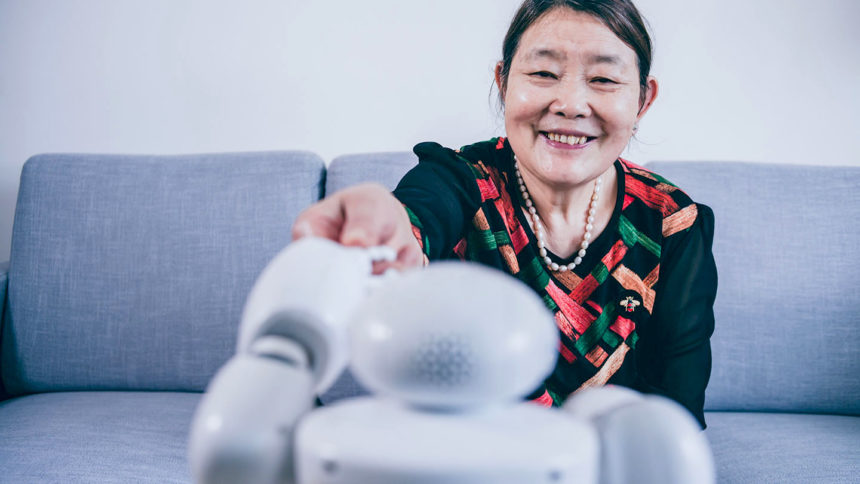
Artificial intelligence’s impact on senior living has been massive, and, in a scenario that seems ripped straight from a sci-fi novel, humanoid robots could soon take the place of some senior living community workers. A robotics startup plans to put AI-powered humanoid robots in assisted living communities, adding to other real-world jobs where the robots are being tested.
1X, a company funded by OpenAI, which runs ChatGPT, unveiled its humanoid robot, EVE, in April. EVE does specialized tasks that could only be performed by humans until now, and is already patrolling as a security guard at industrial sites. In the next five to 10 years, the company plans to put EVE in senior living facilities to do some of the work currently done by staff.
Supervised by humans, the robot has a human-like head, an LED face that can show reactions, and moving arms, which can open doors, windows and manipulate objects.
In testing, EVE has outperformed Elon Musk’s Tesla robots, integrating seamlessly into a professional environment, according to Decrypt.co. Robots from companies like Boston Dynamics also have sensing and mobile manipulation capabilities. 1X is working on another robot, NEO, that will be capable of walking like a human.
In the senior living field, AI is already being used to alleviate staffing shortages while making operations easier and more efficient. For example, ChatGPT is automating language-related tasks, including record keeping and medical exam note taking. In fact, 40% of all healthcare working hours can be supported or augmented by language-based AI, according to a new report by Accenture. Forty-two percent of companies want to make a large investment in ChatGPT in 2023, and half of healthcare organizations plan to use ChatGPT for learning purposes, according to the report.

